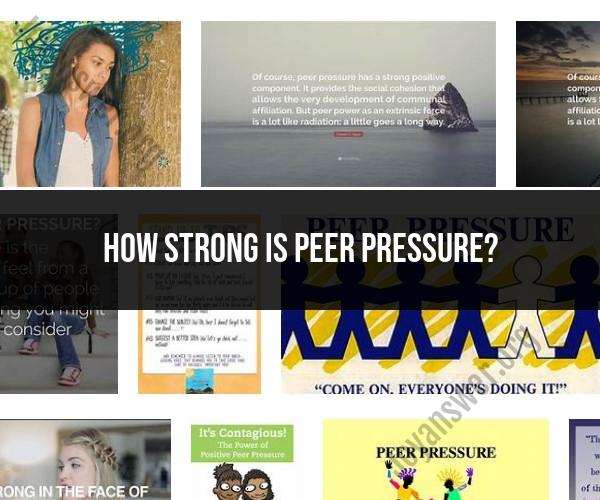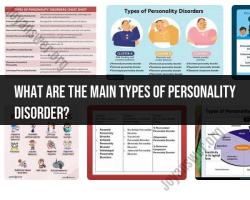How strong is peer pressure?
Peer pressure can be quite strong and influential, especially during adolescence and in social situations. It refers to the impact that friends, classmates, or social groups have on an individual's thoughts, behaviors, and decisions. Here's a closer look at the strength of peer pressure:
Conformity: People have a natural tendency to conform to the behaviors and attitudes of those around them, especially if they want to fit in or be accepted by their peers. This can lead individuals to adopt behaviors they might not have considered on their own.
Desire for Acceptance: The need to belong and be accepted is a powerful human motivation. Adolescents, in particular, are more sensitive to social approval and may alter their behavior to align with what their peers are doing.
Risk-Taking: Peer pressure can lead to risky behaviors, such as experimenting with drugs, alcohol, or engaging in dangerous activities. The desire to be part of a group can outweigh concerns about potential negative consequences.
Social Identity: People often define themselves by the groups they belong to. This can lead individuals to adopt the values, behaviors, and attitudes of the group, even if those actions go against their personal beliefs.
Emotional Impact: The fear of rejection or exclusion can have a significant emotional impact, driving individuals to go along with peer pressure to maintain social connections.
Positive Influence: Peer pressure isn't always negative. It can also lead to positive behaviors, such as participating in sports, volunteering, or academic pursuits, if the peer group values such activities.
Media and Social Media: Peer pressure can extend to online spaces, where social media and online communities can amplify the pressure to conform to certain standards, lifestyles, or trends.
Vulnerability: Some individuals, such as those with lower self-esteem or a strong desire for approval, may be more susceptible to peer pressure.
It's important to note that the strength of peer pressure can vary based on factors like age, personality, social context, and the individual's level of self-confidence. Parents, educators, and mentors play a crucial role in helping individuals develop the skills to resist negative peer pressure and make informed, independent decisions.
Teaching critical thinking, building self-esteem, and fostering open communication can empower individuals to navigate peer pressure and make choices that align with their values and well-being.











